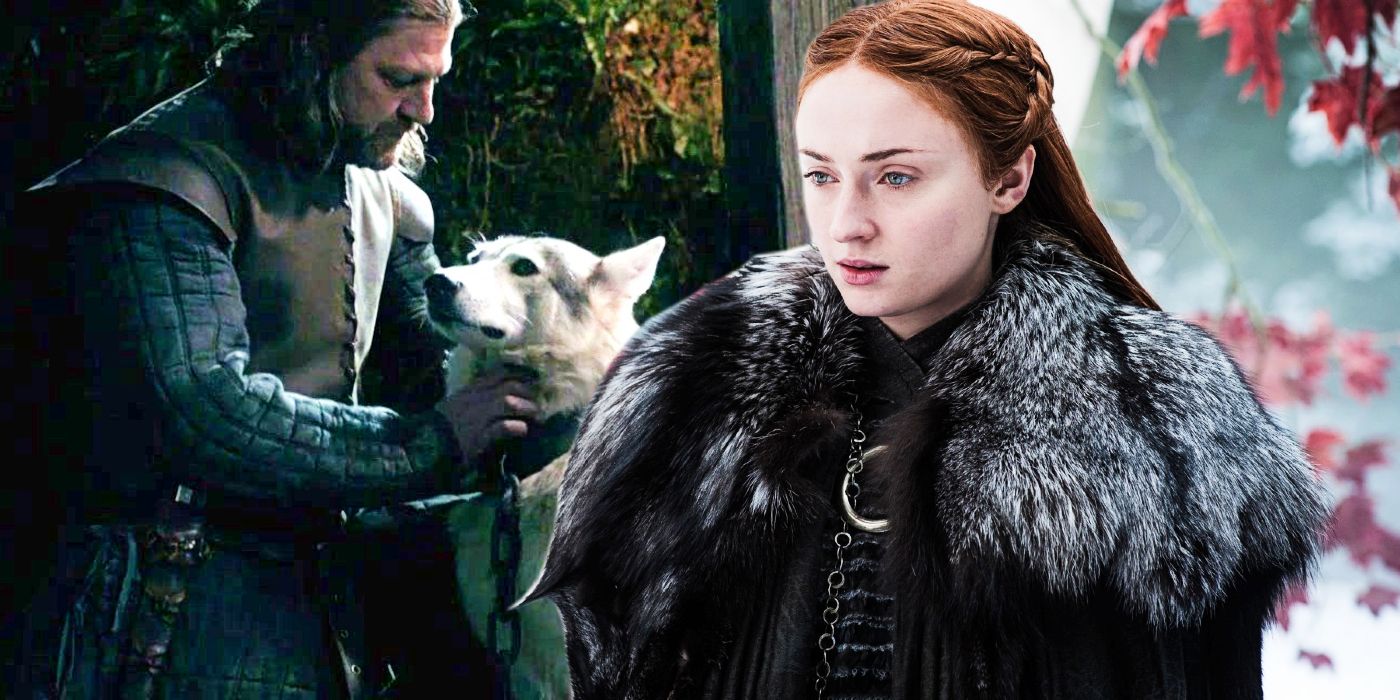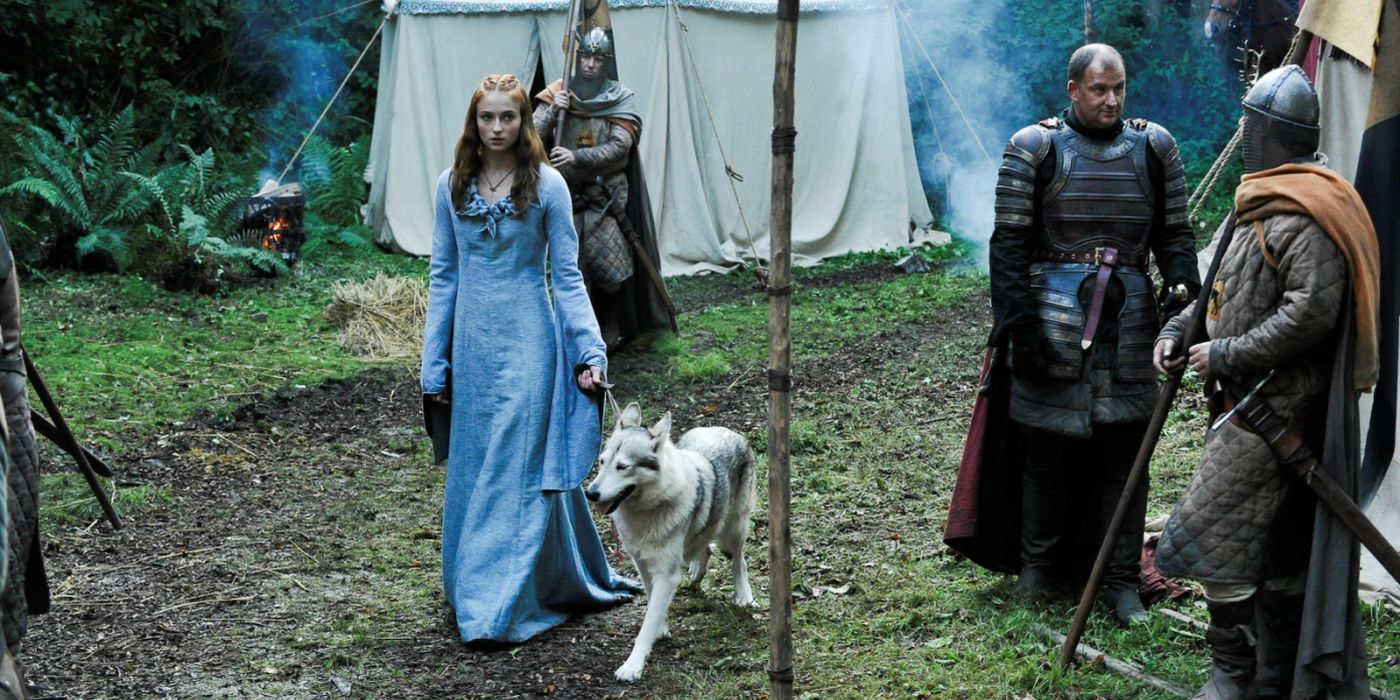
HBO’s Game of Thrones took a lot of liberties as they adapted the books to the screen, with one key omitted storyline being that Sansa, like the other Stark children, is theorized to be a warg. Game of Thrones primarily centers on House Stark, a historic noble family in Westeros who are the liege lords of the North and rule out of Winterfell. In the series’ timeline, the family consists of Lord Eddard Stark, his wife Catelyn Tully, their children Robb, Sansa, Arya, Bran, and Rickon, as well as Ned’s bastard son Jon Snow.
After Bran is paralyzed in Game of Thrones’ premiere episode, he discovers he can not only see through the eyes of animals, especially his pet direwolf Summer, but can also place his mind inside and control the actions of his wolf when in a dreamlike state. As the series progresses, Bran learns he’s a warg/skinchanger, eventually realizing he is also a greenseer, which takes him on the journey of becoming the world’s Three-Eyed Raven. Bran’s storyline is similar in the show as it is in the novels, though the A Song of Ice and Fire books actually make all of the Stark children warg with their direwolves, with the only sibling’s power not explicitly explored being Sansa.
One of Game of Thrones’ first mistakes was leaving out all Stark children being wargs because their relationships with their direwolves actually contribute significantly to their storylines. In the series, Sansa’s connection with her direwolf is the least explored as hers is the first to die, but the novels suggest that she was actually a warg, and her direwolf’s death led to her tragic loneliness in the early seasons. All of the other Stark children have visions and warg-like connections to their direwolves in Game of Thrones' books, but because Lady had died early on, it was only implied that Sansa shared such powers.

After Ned is killed and she is separated from Arya, Sansa is completely alone in the capital with no true allies until she finally returns to Winterfell in Game of Thrones season 6. In contrast, other Starks tend to stay with the direwolves until their own deaths (Robb and Grey Wind both die at the Red Wedding in series and book; Rickon is killed shortly after Shaggydog in the show; Summer is killed long after the connection with Bran has been fully explored). The novels make it so that even if the child and their direwolf are physically apart, they’re never truly separated; Jon’s lonely splits from Ghost and Arya’s from Nymeria were still connected as they warged through their direwolves. Sansa was the only child whose direwolf died before herself, meaning she was never able to even experience connection with her pack when separated like the others.
Sansa was one of the most criticized characters of Game of Thrones in its first few seasons, with many seeing her as a spoiled child whose only focus was to become a highborn, proper lady and, more importantly, the queen. Sansa is alone in the capital for seasons 2 to 4 as all of the Stark children were separated after Ned’s death, and her solitude is made even more apparent in the novels by not having her direwolf. In the books, Sansa explains that she would have felt so much safer in King’s Landing with Lady at her side, which is elevated by the fact that in the Starks’ warg abilities, Lady was actually a more powerful extension of herself. By losing her direwolf, she lost a part of herself and sense of connection with her family, and additionally, her pack. Game of Thrones' Sansa seeming childish and misguided appears to be due to her selfish desires of ladyship, but it’s really because she’s lost without her direwolf. Had Game of Thrones explored the warg abilities of all Stark children, Sansa included, her character likely would have been better understood and less criticized.
from ScreenRant - Feed https://ift.tt/2Vuko39


0 Comments